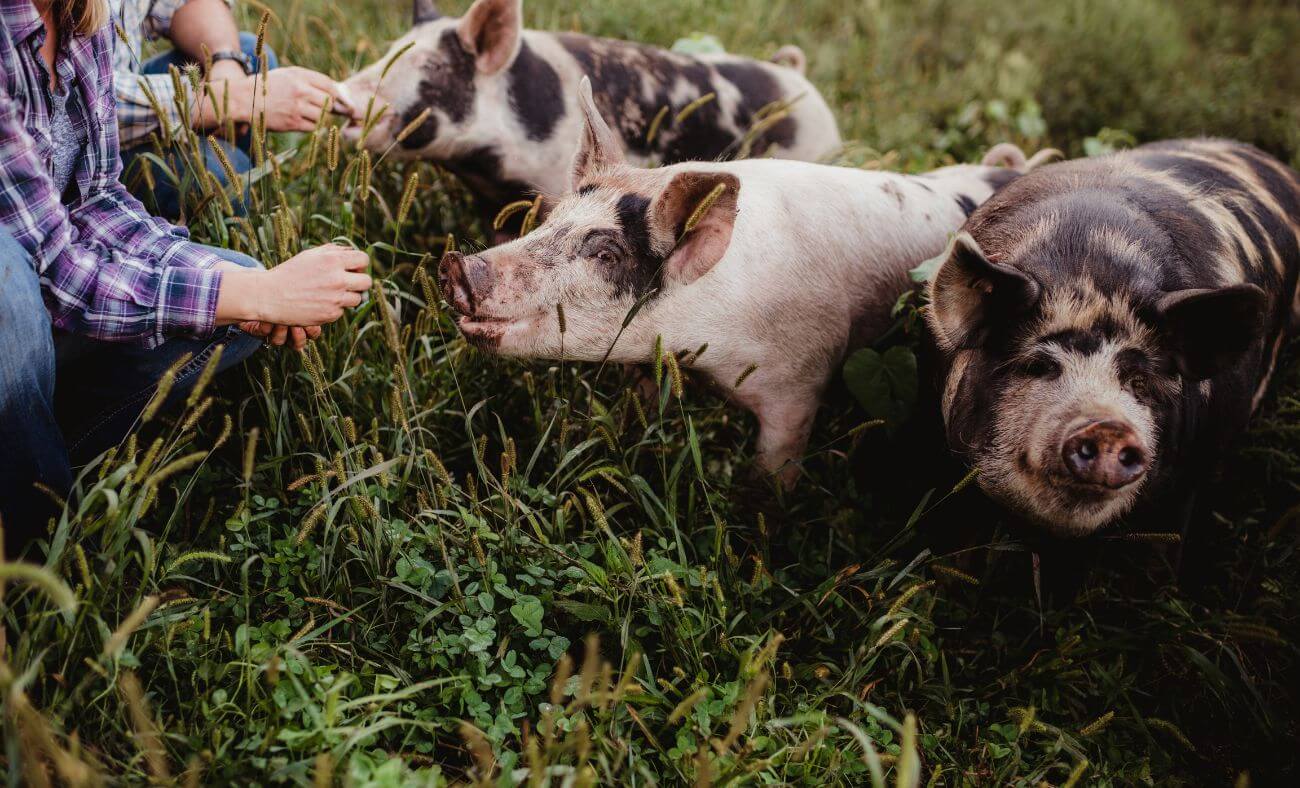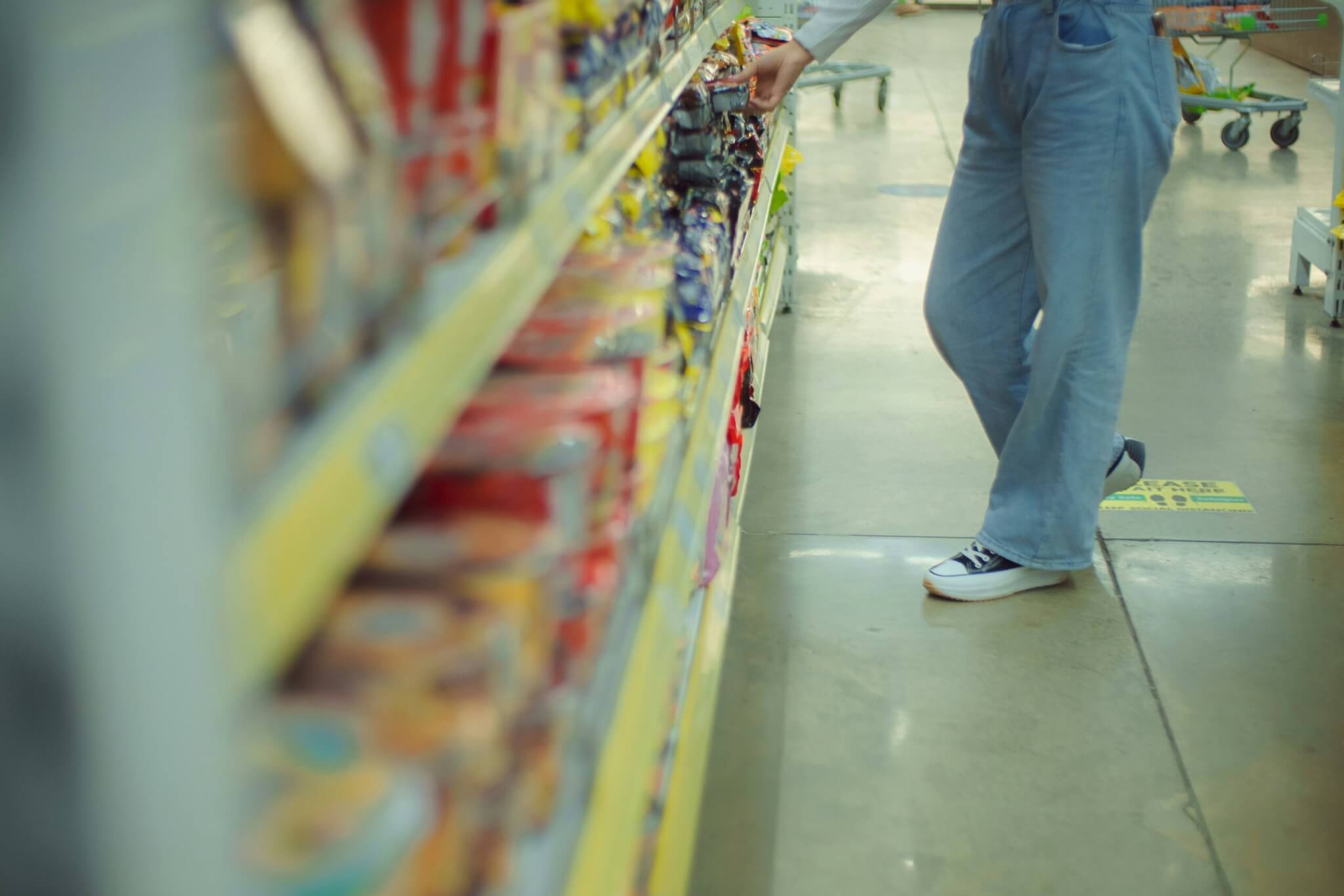Eating more pulses and producing 80 per cent less factory-farmed chicken and pork would allow the UK to reduce its reliance on soy with its links to deforestation of the Amazon rainforest, according to a new report.
The Soy No More report, produced by sustainable food specialists from The Landworkers’ Alliance, Sustain, Pasture for Life and Hodmedod, modelled three scenarios that would allow the UK to import less soy, which is primarily used to feed pigs and chickens.
It aimed to highlight the “fundamental links between soy production and deforestation”, as well as show how eating more pulses can help reduce demand for soy while also supporting a less intensive pig and poultry farming system.
It comes as part of a growing understanding of how our demand for soy is linked to deforestation of fragile forest ecosystems, including a Wicked Leeks film which met farmers pioneering soy alternatives, earlier this year.
In the new report, researchers modelled three scenarios, including one that took into account current land use in the UK and how it needs to grow crops for both animal feed and human food.
This model found that if people eat more pulses and land is prioritised for growing pulses for humans, there would be more room for farmers to rear pigs and chickens in less intensive systems that don’t require soy feed.
Under this model, the animals could be fed on by-products including heat-treated food waste as well as protein-rich crops that are grown alongside pulses for humans.
“If we want to save the rainforest we need to think seriously about replacing soy in livestock feed,” said Jyoti Fernandez, head of policy and campaigns at LWA.
“The vast majority of the UK’s soy imports goes towards feed for large scale and intensive pig and poultry operations, but what we want to see is a transition away from industrial high-input animal farming and towards smaller and more diverse pig and poultry farms.
“For this to be feasible, we’ll need to start eating less chicken and pork than we currently consume, and we’ll need to start eating more plant-based proteins like peas and beans. But this important dietary change will allow for healthier soils and more resilient farms in the UK – as well as contributing significantly to combatting climate change.”
Farmer Amy Chapple, who raises soy-free pigs at Redwoods Farm in Devon and featured in the Wicked Leeks’ film exploring the topic recently, said: “We feed our pigs on a completely soy-free diet because we want to provide nutritious and sustainably produced food for our customers.
“Since removing soy from our pig feed and replacing it with UK grown peas and beans we’ve seen so many benefits – from the creation of richer pastures which they graze on with cattle, to higher nutrient content in the meat and a more resilient businesses model as we’re not having to rely on large feed suppliers.”
The report, which highlights how soy supply chain certification initiatives will never be effective in halting deforestation, states there is an urgent need to reduce soy demand to take meaningful steps towards climate change mitigation and reversing biodiversity loss.
In addition, because of exposure to price volatility of global commodity markets for animal feed, the report argues that soy-free alternatives could also support a more resilient pig and poultry sector in the UK.
Other models considered by the report included replacing soy in UK pig and poultry feed with home-grown legumes, which would require land given up to this farming to increase by up to 80 per cent. Within a context of increasing competition over land-use in the UK combined with the need to become more self-sufficient in food production, researchers said this is not a realistic option.
The second scenario looked at how to feed chickens and pigs on home-grown legumes without the production of these crops, but found that to do this, we would need to eat 44 per cent less poultry and 41 per cent less pork. This would not leave enough room to increase production of plant-based proteins such as pulses which would then be needed to supplement the loss of protein.
The report was launched at an event in Westminster today (19 June) and includes a range of recommendations for what policymakers could do to help.
What can you do to help?
Eating more beans, lentils and other pulses is easy and affordable. Try these recipes and consider buying dried or in bulk to keep the cost down.
Look for ethical certifications that are supporting low-intensive farming and consider eating less but better quality meat to make budgets stretch. Pasture for Life certifies 100 per cent grass-fed meat, while organic is a guarantee of non-GM animal feed.
A balanced diet is important, but many plants can also be a protein source and can help you reduce reliance on meat in your meals – as well as saving a bit of money! Try these top five high protein veggie recipes.
Spread the word by sharing our film on what is the problem with animal feed?













Sadly link to ‘top five high protein veggie recipes’ is broken.
There are many recipe sites online now with excellent plant-based recipes. I have many links saved but don’t think I can link them here. Look us the fb group PlantbasedOnABudget also.
When you read about animals in feedlots being fed newspaper and sawdust, it does make one think about what people are prepared to eat Also where is your food dollar going, to Naomi down the road and her grass fed beef or…..I am eating less meat, better quality, supporting local farmers and growing more beans. But I am privileged because I have choices.
Couldn’t agree more. Peas and beans are so versatile.
Factory-reared chicken is a disgrace and a disaster. How on earth homo not-so sapiens can have allowed this to be developed is beyond me. And we allow supermarket bosses to be paid millions for overseeing this.
Ditto pork (although I still need to wean myself off the last vestiges of prosciutto and pancetta).
But try buying died beans. They’re largely off supermarket shelves and are a struggle to buy even in more specialist shops.
Falafel, humous and home-made flat breads with a bit of salad. Easy to make. Not expensive. Yum.
In reply to Robert John:
Slaughterhouses douse alive pigs with boiling water whilst they are suspended upside down so that their skin is easier to remove after they’re killed. Knowing this has helped me avoid pork products for years.
Plenty of varieties of tinned beans & Biona are BPA free. Eating plants-only saved us c15-20% on our food bill initially, although understanding more about the food system we now spend more of our funds prioritising organic, plus local & seasonal fresh produce & buy less other ‘stuff’. It’s empowering 🙂
the broken link seems to have been fixed now, takes you to a piece on Hodmedods.
I discovered them first on the shelf in ‘Wholefoods’ shop in Bedford years ago. Now [having moved] I buy my dried beans, lentils, chickpeas etc at ‘Lembas’ warehouse in Sheffield. They do deliver for miles around, charge dependent on the cost of your order vs distance. Italian delis may have some dried beans if you have one of those near enough. I too make my own humous almost all the time, using a pressure cooker and stick blender. Home made [Panasonic breadmaker 255] wholemeal bread for me.
The only sad thing is I have to be very wary of fava beans /foul medames as sold in tins in Asian shops, as I developed gout in one ankle due to lockdown attempts at walking as exercise, and fava beans are a trigger.
This is more to supermarkets: who does say how much meat do we need? I would like to know where all the meat on the shelves goes after BB date is up. There is soooo much on the shelf I cannot believe we need it. Perception is very strong tool for misleading us customers…
“a balanced diet” – when eating plants-only we eat the exact same nutritional groups, slightly different mix of individual foods.
All humans need is a ‘balance’ of ‘nutrients’ across the food groups, i.e. carbohydrates, proteins, fats, vitamins, minerals, dietary fibre plus water, All of which are available on diets on #PlantsOnly – fruit/veg inc root veg, leafy greens, potatoes & other tubers, wholegrains & whole cereals, all types of legumes (lentils, beans & pulses), nuts & seeds, algae, herbs & spices etc etc. All essential building blocks for necessary protein/nutrition is available in vegetative matter. There is not a single human-required nutrient in animal products that we cannot now obtain from a more ethical, usually healthier, less environmentally damaging source. We need nutrients, not the lives of animals as has been conditioned into humanity’s thinking for too long. Eat fully at the lower trophic level, plants, inherently reduce our environmental & cruelty footprints.
I eat meat and will continue to do so. There are ethical and caring ways of killing animals for meat, and lots of abattoirs do not get up to the methods which are quoted. Why must the most extreme always be quoted, and why do a lot of these quotes refer to methods in the US. Why? To make us think that this is normal everywhere, when it isn’t. I buy meat with caring provenance, even though I have to pay more and eat less of it. I agree that I am fortunate to be able to have this choice.
(And I dislike lentils and beans!)